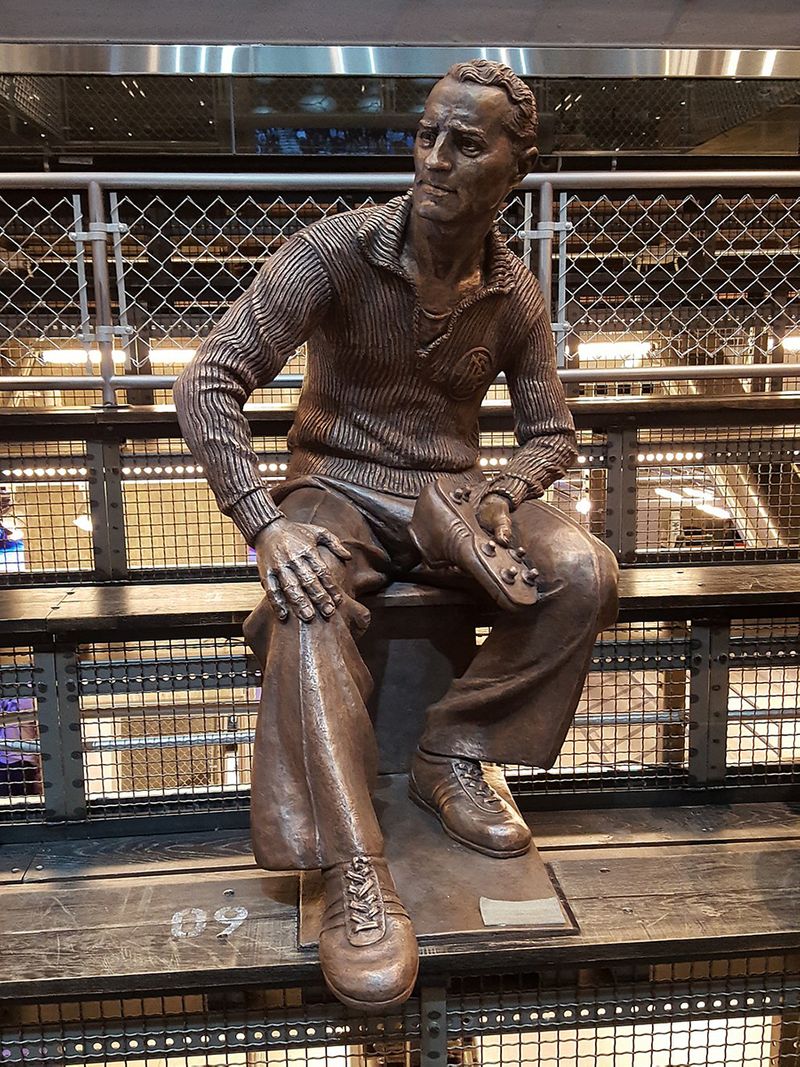
Two of the biggest athletic footwear empires in the world today – Adidas and Puma – started in the kitchen of a family home in Herzogenaurach, Germany.
Click start to play today’s Crossword, where you can spot one of the creators of Adidas in the clues.
Adolf Dassler, a creative, shy artisan, began sewing shoes in 1924 in his mother’s kitchen, shortly after World War I. His older brother, Rudolf, was far more sociable and outgoing – he saw an opportunity to market the shoes his brother made, and so, joined in the venture. Together, the brothers launched their company, Sportfarbrik Gebruder Dassler (or Geda), which quickly became known for excellent quality and innovative design. Adolf, in fact, was responsible for crafting the first metal-spiked sneakers, which are now known as cleats.

By 1927, the company took on 12 additional workers. And in the 1928 Olympics in Amsterdam, Netherlands, when German distance runner Lina Radke set a new world record at the 800m race, in Geda’s spiked track shoes, the company found itself pushed into the spotlight.
But Geda’s biggest moment arrived in the 1936 Olympic Games in Berlin, Germany. With Nazism brewing, and World War II imminent, the Olympics was testament to the talent of diverse international athletes. American track and field athlete Jesse Owens challenged the Nazi concept of Aryan supremacy – he was faster that anyone Germany could offer. And Geda gave him a pair of hand-crafted cleats to achieve his goals.
When Owens won four golds at the Olympics, his victory was a celebration of human determination and spirit, something that transcended the colour of one’s skin, or their bloodline. It was a thumb to the nose for the Nazis. And all the while, people noticed something else – Geda was behind Owen’s winning cleats.
The company blew up, with orders pouring in from around the country and even abroad. However, the Dassler brothers’ relationship began to sour. Both personally and in business matters, they fought and tried to wrest control from each other. In 1941, the Nazis ordered the Dassler factory to stop production of track shoes and create 10,500 pairs of shoes a month for the regime.
When Adolf was drafted, he was given a deferment because he was integral to the running of the factory. But when Rudolf was drafted in 1943, he had to leave, and blamed his brother for his draft – he demanded that Adolf keep him informed about every business decision, and wanted his wife, Friedl, to act as his deputy. Adolf refused, and their relationship worsened.
With family infighting, and the brothers plotting to put each other down, the time had come to break up the company. In 1948, Geda officially split, and the brothers moved their portion of the assets and employees into operations located on opposite sides of the Aurach River.
Adolf called his business Adidas – a combination of his first and last name – and Rudolf did the same, dubbing his business ‘Ruda’, although he later changed it to Puma.
The entire town of Herzogenaurach was affected by the siblings’ intense rivalry. Marrying across companies was strictly forbidden. Residents only shopped in stores on the same side of the river as the factory in which they worked. Herzogenaurach began to be known as ‘the town of bent necks’ because each faction would eye one another for telltale marks of the other brand. In the end, the brothers never reconciled, and they were buried at the opposite ends of the same local cemetery.
Adidas and Puma, today, are the world’s second and third top sports shoes business, according to analysis by statistics and research company Statista. In number one position is the American sports brand Nike. Would things have been different if the brothers were on cordial terms, and the companies they ran had remained united, as Geda?
What do you think? Play today’s Crossword and tell us at games@gulfnews.com.




